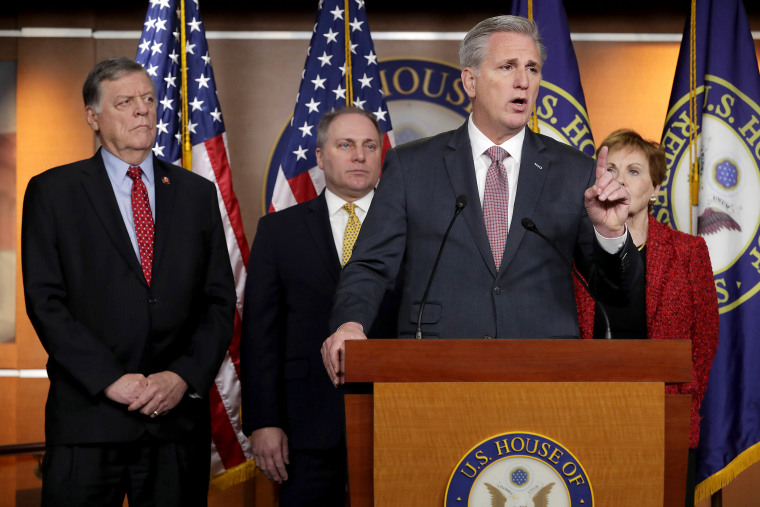As a rule, congressional Republicans aren't in the habit of unveiling policy proposals on any issue. It's the hallmark of a post-policy party: it's up to others to do the unglamorous work of crafting substantive legislation.
With this in mind, it was a pleasant surprise to see this report from Bloomberg News on GOP officials working on, of all things, a climate plan.
House Republicans plan to unveil their own plan to fight climate change later this month, according to three people familiar with the matter, a reflection of the pressure on the party to come up with solutions to a problem it had previously denied or ignored. The legislative package, being spearheaded by House GOP Leader Kevin McCarthy, is still being assembled but is expected to include a plan to plant as many as a trillion trees, said two of the people who asked not to be identified in describing private communications.
The same report added that the blueprint, to be rolled out in time for Earth Day, "is also expected to include a focus on the research and development of low-emissions sources of power as well as the development of carbon capture technologies and natural gas plants."
Without more information, it's difficult to say with any confidence whether the House GOP plan will have any merit, though given everything we know about Republican lawmakers' approach to this policy and policymaking in general, some skepticism is probably in order.
So why is this notable at all? For two reasons.
First, it suggests even a radicalized House Republican conference no longer sees blanket climate denial as a sustainable political position. Several years ago, Kevin Drum wrote a terrific item on the evolution of the right's approach to the climate crisis, noting that conservatives started by denying rising global temperatures, before chalking up rising global temperatures to natural phenomena, and then arguing that doing anything about rising global temperatures is too difficult.
Ultimately, however, much of the right scrapped each of these talking points and simply concluded that global warming "is the biggest hoax ever put over on the American public." The idea of addressing the climate crisis wasn't just rejected, it was derided by GOP officials as ridiculous.
As public attitudes shift, and the global crisis intensifies, it appears that House Republicans now want to be able to say they have a proposal to address the problem. Even if the proposal is weak and ineffective, it's better than the right pretending the crisis can and should be ignored.
All of which leads to the other reason the plan is notable: it has the potential to change the nature of the conversation. As things stand, the United States has one major party that's eager, if not desperate, to reduce carbon pollution and combat the climate crisis, and another major party that believes it's persuasive to peddle mind-numbing talking points such as, "The climate is always changing."
Everyone would benefit if instead, there was a debate between competing ideas, predicated on the idea that the crisis is real and in need of serious attention.
The point is not that the House Republicans' plan will have merit; it almost certainly won't. Rather, my standards for GOP officials are so low that I'll consider it a minor breakthrough when they grudgingly acknowledge that climate change warrants the unveiling of a plan at all.
